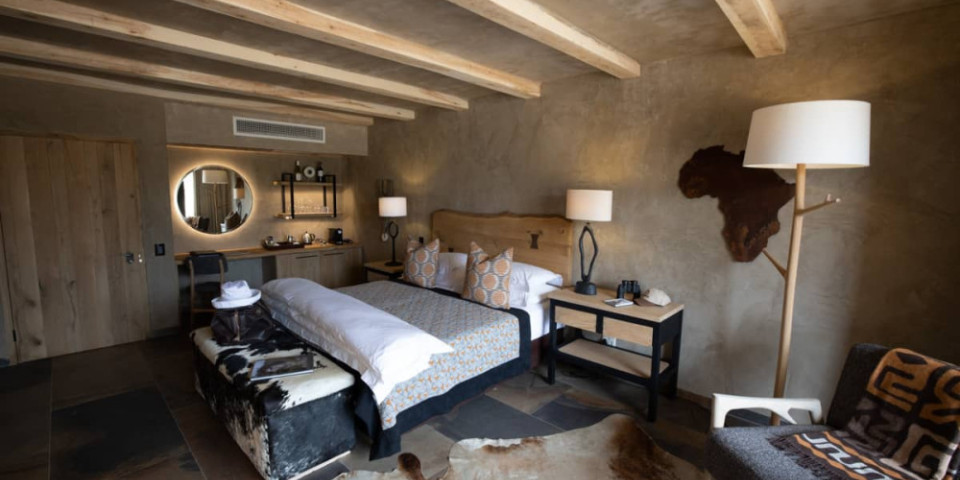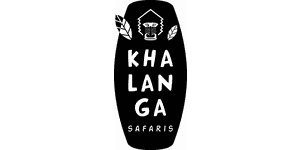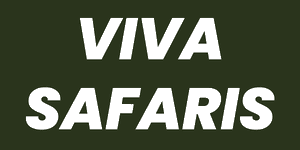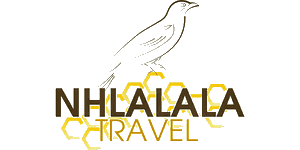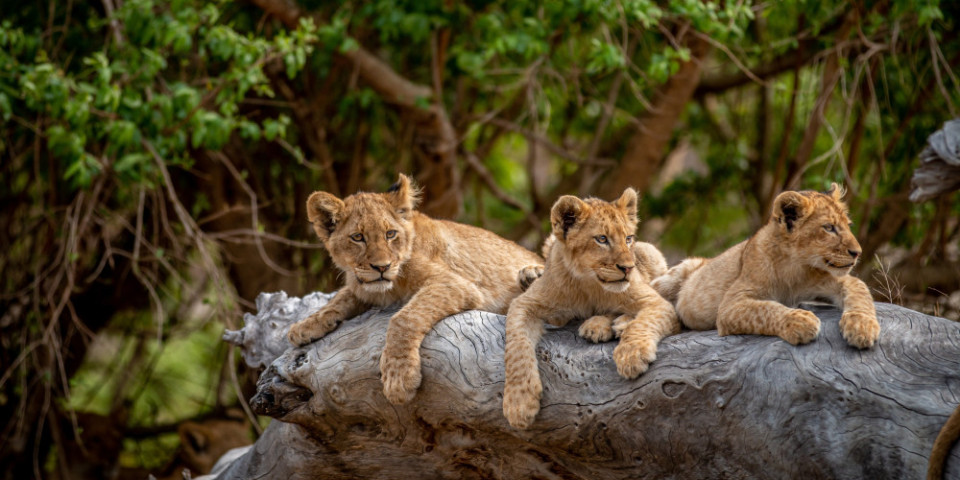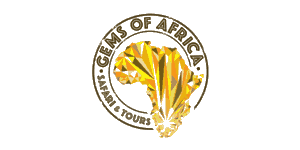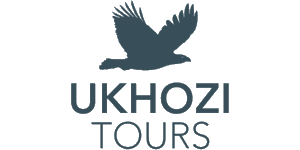Tour Length
Rates in USD $ – Change Currency
Per person, excl. international flightsOperator Rating
Other Tour Features
Filter by Operator
Filter by Accommodation
Kruger Safari Tours - Compare 427 Packages
South Africa’s premier safari destination, Kruger National Park throws up some staggering statistics. Established in 1898, it extends over some 19,000km²/7,335mi² and supports a total of 147 mammal species (the most of any African national park). This includes an estimated 13,000 elephants, 40,000 buffalo, 2,000 lions and more rhinos than any other protected area. Kruger is an ideal safari destination at both ends of the price and experiential spectrum. No other major African park is so well geared to budget-conscious self-drivers. Equally, some of the all-inclusive private and concession lodges associated with Kruger and its immediate surroundings (including MalaMala, Sabi Sabi and Londolozi) rank among the most exclusive, prestigious and costly in Africa.
-

3-Day Kruger Safari at Mdluli Safari Lodge
$898 pp (USD)
South Africa: Private tourLuxuryLodge
You Visit: Nelspruit (Start), Kruger NP, Nelspruit (End)

Africa Incoming
4.7/5 – 14 Reviews
-
Top Rated Operator

4-Day Classic Kruger Park Safari
$986 pp (USD)
South Africa: Shared tour (max 6 people per vehicle)
Mid-range LodgeYou Visit: Johannesburg (Start), Kruger NP, Johannesburg (End)

Wildlife Safaris
5.0/5 – 291 Reviews
-
Top Rated Operator
_1269_65856374115bf.480x240-35.jpg)
4-Day Luxury Radisson Kruger Safari
$885 pp (USD)
South Africa: Shared tour (max 10 people per vehicle)LuxuryHotel
You Visit: Johannesburg (Start), Kruger NP, Panorama Route (Highlight), Johannesburg Airport (End)
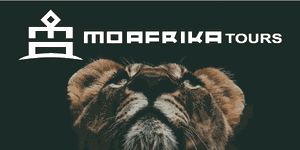
MoAfrika Tours
4.9/5 – 2,253 Reviews
-

9-Day Luxury Cape Town, Kruger NP and Victoria Falls
$5,379 to $6,688 pp (USD)
South Africa & Zimbabwe: Private tourLuxuryLodge & Hotel
You Visit: Cape Town (Start), Kruger NP, Victoria Falls (End)
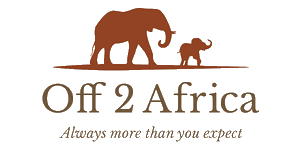
Off2Africa Travel
5.0/5 – 145 Reviews
-
Top Rated Operator

5-Day Kapama River Lodge Deluxe Suite Safari
$2,665 to $3,310 pp (USD)
South Africa: Shared tour (max 9 people per vehicle)Luxury+Lodge
You Visit: Johannesburg (Start), Kapama GR (Greater Kruger), Kruger NP, Johannesburg (End)

The Kruger Safari Co.
5.0/5 – 209 Reviews
-
![4-Day Classic Kruger Safari]()
4-Day Classic Kruger Safari
$1,137 pp (USD)
South Africa: Private tour
Mid-range You Visit: Johannesburg (Start), Kruger NP, Johannesburg Airport (End)

Khalanga Safaris
5.0/5 – 83 Reviews
-

4-Day Kruger Safari & Private Game Reserve Highlight
$1,247 pp (USD)
South Africa: Shared tour (max 9 people per vehicle)LuxuryLodge & Hotel
You Visit: Johannesburg (Start), Kruger NP, Greater Kruger, Johannesburg (End)

Elephant Herd Tours & Safaris
4.9/5 – 158 Reviews
-
Top Rated Operator

5-Day Tremisana/Tent Kruger Park Safari
$777 pp (USD)
South Africa: Shared tour (max 9 people per vehicle)BudgetLodge & Tented Camp
You Visit: Johannesburg (Start), Balule NR (Greater Kruger), Olifants River, Kruger NP, Blyde River Canyon (Panorama Route), Johannesburg (End)

Viva Safaris
4.9/5 – 306 Reviews
-
![5-Day Kruger National Park South & Panorama Route]()
5-Day Kruger National Park South & Panorama Route
$1,010 pp (USD)
South Africa: Private tour
Mid-range LodgeYou Visit: Johannesburg (Start), Southern Kruger NP, Kruger NP, Matsamo Cultural Village (Cultural Village), Panorama Route (Highlight), Johannesburg Airport (End)

Nhlalala Travel
4.9/5 – 66 Reviews
-
![3-Day Kruger Park Safari from Cape Town with Flights]()
3-Day Kruger Park Safari from Cape Town with Flights
$1,207 to $1,242 pp (USD)
South Africa: Private tour
Mid-range LodgeYou Visit: Cape Town (Start), Kruger NP, Cape Town (End)

Mmilo Tours
5.0/5 – 136 Reviews
-
Best Seller

12-Day Luxury Kruger Safari & Mauritius Escape
$4,999 to $5,799 pp (USD)
South Africa & Mauritius: Private tourLuxuryTented Camp & Resort
You Visit: Johannesburg (Start), Kruger NP, Johannesburg (City), Grand Baie (Town & Beach), Black River, Mauritius (End)

Wayfairer Travel

4.8/5 – 184 Reviews
-
![4-Day Luxury Mdluli Game Lodge Kruger National Park]()
4-Day Luxury Mdluli Game Lodge Kruger National Park
$761 to $834 pp (USD)
South Africa: Shared tour (max 9 people per vehicle)LuxuryLodge
You Visit: Johannesburg (Start), Kruger NP, Johannesburg (End)

Gems of Africa Safari and Tours
5.0/5 – 140 Reviews
-

4-Day Incredible Private Safari Inside the Kruger Park
$1,517 pp (USD)
South Africa: Private tour
Mid-range You Visit: Johannesburg (Start), Kruger NP, Johannesburg (End)

Endless Summer Tours
5.0/5 – 71 Reviews
-
Top Rated Operator
![5-Day Kruger and Greater Kruger Semi-Exclusive Safari]()
5-Day Kruger and Greater Kruger Semi-Exclusive Safari
$1,236 pp (USD)
South Africa: Private tourBudgetLodge & Tented Camp
You Visit: Johannesburg (Start), Kruger NP, Panorama Route (Highlight), Sabi Sands (Greater Kruger), Johannesburg (End)

Safari With Us
4.9/5 – 246 Reviews
-
Best Seller
![4-Day Kruger NP Big Five & Panorama Route Safari]()
4-Day Kruger NP Big Five & Panorama Route Safari
$642 to $706 pp (USD)
South Africa: Shared tour (max 8 people per vehicle)BudgetLodge
You Visit: Johannesburg (Start), Southern Kruger NP, Panorama Route (Highlight), Johannesburg (End)

The Mzansi Experience
4.5/5 – 87 Reviews
-

6-Day Private Custom African Wildlife Safari (Mid-Range)
$2,980 pp (USD)
South Africa: Private tour
Mid-range Tented CampYou Visit: Johannesburg (Start), Kruger NP, Timbavati NR (Greater Kruger), Johannesburg (End)

Ukhozi Tours
5.0/5 – 10 Reviews
-
Top Rated Operator
![4-Day The Greater Kruger Tshukudu Safari]()
4-Day The Greater Kruger Tshukudu Safari
$1,645 pp (USD)
South Africa: Private tour
Mid-range LodgeYou Visit: Johannesburg (Start), Tshukudu GR, Kruger NP, O.R. Tambo Airport (Johannesburg), Johannesburg (End)

Go Touch Down Travel & Tours

5.0/5 – 169 Reviews
-
Top Rated Operator
![6-Day Sabi Sands and Kruger Park Safari]()
6-Day Sabi Sands and Kruger Park Safari
$4,408 pp (USD)
South Africa: Private tourLuxuryLodge & Tented Camp
You Visit: Johannesburg (Start), Sabi Sands (Greater Kruger), Kruger NP, Johannesburg Airport (End)

Discover Africa Safaris
5.0/5 – 525 Reviews
-

4-Day Imbali Safari Lodge, Kruger National Park
$2,357 pp (USD)
South Africa: Private tourLuxury+Lodge
You Visit: Johannesburg (Start), Kruger NP, Johannesburg (End)

BST Tours
4.8/5 – 30 Reviews
-
![3-Day Johannesburg to Kruger National Park Safari]()
3-Day Johannesburg to Kruger National Park Safari
$586 pp (USD)
South Africa: Shared tour (max 9 people per vehicle)BudgetCamping
You Visit: Johannesburg (Start), Kruger NP, Johannesburg (End)

Mbombela Experience Tours & Transfers
5.0/5 – 34 Reviews
8 Questions About Kruger National Park Safaris

Answered by
Philip Briggs
Philip is a renowned Africa expert and author of many Bradt guidebooks to African destinations, including the guide to South Africa.› More about Philip
8 Questions About Kruger National Park Safaris
 Philip Briggs
Philip Briggs
When is the best time to go on safari in Kruger?
“The best time for Kruger safaris is during the southern hemisphere winter months of May to September, with wildlife-viewing conditions improving throughout this period. Climatically, it is most pleasant during these dry winter months (warm by day, cool by night) and there are fewer mosquitoes, which reduces the risk of contracting malaria. Winter offers the most productive wildlife viewing. This is because the vegetation tends to be lower and thinner, allowing for better visibility, and the lack of rain causes wildlife to gather around permanent water sources. Bird-watchers may arrange their Kruger tours for summer, when large numbers of migrant birds arrive from Europe and many resident species display a colorful breeding plumage. If you don’t like crowds, avoid visiting Kruger during South African school holidays.”
1What are the most popular areas in the park?
“Most Kruger safari packages focus on the park’s southern third. Partly this is because it’s the closest section to Johannesburg, and pretty much everywhere else in South Africa, which means it fits most comfortably into a countrywide itinerary. In addition, the south has denser wildlife populations than the north and wildlife tends to be more habituated to cars (and therefore easy to view). There is also a greater choice of rest camps and concession lodges. Probably the most productive and popular game drives in the south comprise a triangle of roads connecting Skukuza, Lower Sabie and Satara, and the two roads running south from Skukuza to Malelane and Lower Sabie to Crocodile Bridge Gate. The popularity of these roads means they can become congested during busy periods such as school holidays, which is when locals tend to visit Kruger.”
2Is Kruger good for a self-drive trip?
“Yes, Kruger is arguably the best self-drive safari destination anywhere in Africa. This is due to its easy accessibility, combined with a network of good surfaced roads and well-equipped rest camps, and the ready availability of interpretative material such as maps and dedicated field guides. Self-drivers can either rent a car in Johannesburg or Pretoria and drive to Kruger, or they can fly to an airport within the park or just outside it and pick up a rental car there (by advance arrangement). Self-drivers should bear in mind that cars drive on the left side of the road (like the UK and many former British colonies, but unlike the USA and most of Europe and Asia). You should allow for average driving speeds of around 30km per hour within the park. The speed limit in Kruger is 50km per hour on surfaced roads and 40km per hour on dirt, but you also need to allow time for stops to look at wildlife. Another attraction for independent travelers is that prices for Kruger safaris tend to be very low compared to other major African parks.”
3What animals can I expect to see on a Kruger safari?
“All the Big Five (lion, leopard, elephant, rhino and buffalo) are present in significant numbers. However, wildlife viewing in Kruger can be hit-and-miss, so those seeking a Big Five quick fix would be better heading to one of the private reserves that offer expertly guided all-inclusive safari packages. That said, those who allocate a couple of days to their Kruger safari can be confident of encountering large herds of buffalo and elephant, and also stand a good chance of seeing lion, white rhino and, to a lesser extent, leopard and black rhino. Other wildlife commonly seen on Kruger safari trips includes spotted hyena, black-backed jackal, southern giraffe, plains zebra, hippo, warthog, wildebeest, impala, greater kudu, common waterbuck, vervet monkey and chacma baboon. Sightings of cheetah and African wild dog are possible but rare. Birdlife is prolific, with more than 500 species recorded. The park is particularly good for colorful savannah dwellers such as the lilac-breasted roller, yellow-billed hornbill and white-fronted bee-eater. There is also a wide variety of eagles, vultures and other raptors, as well as hefty ground dwellers such as the southern ground hornbill, kori bustard and ostrich.”
4How long is the drive to the park?
“Coming from Johannesburg or elsewhere in Gauteng, most of the southern gates lie between 400km/249mi and 500km/311mi to the east, a drive of up to five hours on good surfaced roads. Coming from Kruger Mpumalanga International Airport outside Mbombela (Nelspruit), most of the southern gates lie between 40km/25mi and 100km/62mi away, so allow up to 90 minutes. The most remote gate from Johannesburg is Pafuri, which lies about 620km/385mi to the northeast, a seven- to eight-hour drive on roads that deteriorate as you approach the park. When planning your Kruger holidays in the context of a full South Africa tour, be aware that the park is an astonishing 1,800km/1,118mi from Cape Town using the most direct route, and almost 750km/466mi from Durban.”
5What condition are the roads in within Kruger?
“An excellent network of surfaced roads suitable for 2WD cars connects all gates and rest camps in Kruger. This is supplemented by a secondary network of unsurfaced roads, most of which are also suitable for any 2WD car, though some might become problematic after heavy rain. A good map showing the full internal road network can be bought cheaply at any entrance or rest camp gate, and all junctions within the park are signposted for easy navigation. From a wildlife-viewing perspective, surfaced roads often follow busier routes, so taking quieter unsurfaced routes will probably enhance your Kruger vacation.”
6Is the park fenced?
“Until a few years back, the entire park was fenced. Today, however, it shares open borders with a number of private reserves that run along the western border, though in most (if not all) cases, these private reserves are fenced along their outward boundary. Fences along the international boundaries with the other two components of the Great Limpopo Transfrontier Conservation Area (namely Limpopo National Park in Mozambique and Gonarezhou National Park in Zimbabwe) are no longer maintained. This allows wildlife some freedom of movement into these neighboring reserves.”
7What lodges or camps do you recommend for a Kruger safari?
“For a short Kruger holiday (up to 3 nights), I would concentrate on the far south. My favorite camp there is Lower Sabie, which has a beautiful location on the Sabie River at the heart of several top-notch wildlife-viewing roads. Skukuza, the park’s largest rest camp, is a bit too busy for some, but it’s very well equipped (with everything from ATMs and car-rental outlets to a well-stocked supermarket and restaurant) and has a useful location for exploring some good wildlife-viewing roads. Those able to dedicate more time to a Kruger tour (4 or more nights) could head to the central plains. Satara Rest Camp lies in an area of open savannah where lion and cheetah are often seen. Olifants Camp has a stunning location on a wooded ridge overlooking the eponymous river, and tiny Balule Satellite Camp is ideal for those seeking a remote and super-affordable bush experience. An extended Kruger tour (ideally 7 to 10 days) might also take in the far north, where my favorite rest camps are riverside Shingwedzi and remote Punda Maria. For those seeking more exclusive safari packages, try one of the dozen or so upscale concession lodges scattered throughout the park. These lodges offer a luxurious all-inclusive guided experience similar to the legendary Sabi Sands block of private reserves along the park’s western border.”
8Kruger Safari Reviews

Alan is a travel writer and author of over 20 Lonely Planet guidebooks, including the guides to Southern Africa and Zambia & Malawi.
Killing time in Kruger
The mothership of South Africa’s parks, Kruger is more organised and has more variety of accommodation than any other park. It also has a HUGE number of animals with the Big Five and every other kind of five you can think of rustling...

Mike is an award-winning wildlife writer, former editor of Travel Zambia magazine and author of the Bradt Guide to Southern African Wildlife.
Africa’s Best DIY Safari
South Africa’s premier wildlife reserve divides opinion. Some who’ve visited supposedly ‘wilder’ parks argue that the Kruger’s developed infrastructure, complete with paved roads and large public camps, undermines the wilderness...
 US
US
Beautiful park, and it's massive! Much more open spaces and seemed to be a greater diversity of wildlife, although we spent the most time and covered the most distance in this park so that may impact the diversity of things we saw.
 BR
BR
We could see Big 5 plus Cheetah! Amazing time! Some blogs had informed about February not being the best time to go in a Safari (it's batter in the winter) but I desagree! We could see ALL the wonderful animals and the weather was just...
So vast you barely cover a fraction of it. Plenty of amazing Giraffes, Buffalo etc. Preferred the private reserves as you could go off road within 2 metres of elephants and lions with a fresh kill. Still a great day. Bring binoculars! Wish...
 US
US
Kruger National Park has it all, the wildlife, the lodges and gift shops, the restaurants, it's the go-to National Park for anyone who wants to go on an African Safari, and it's not hard to see why. I'd love to go again someday.

